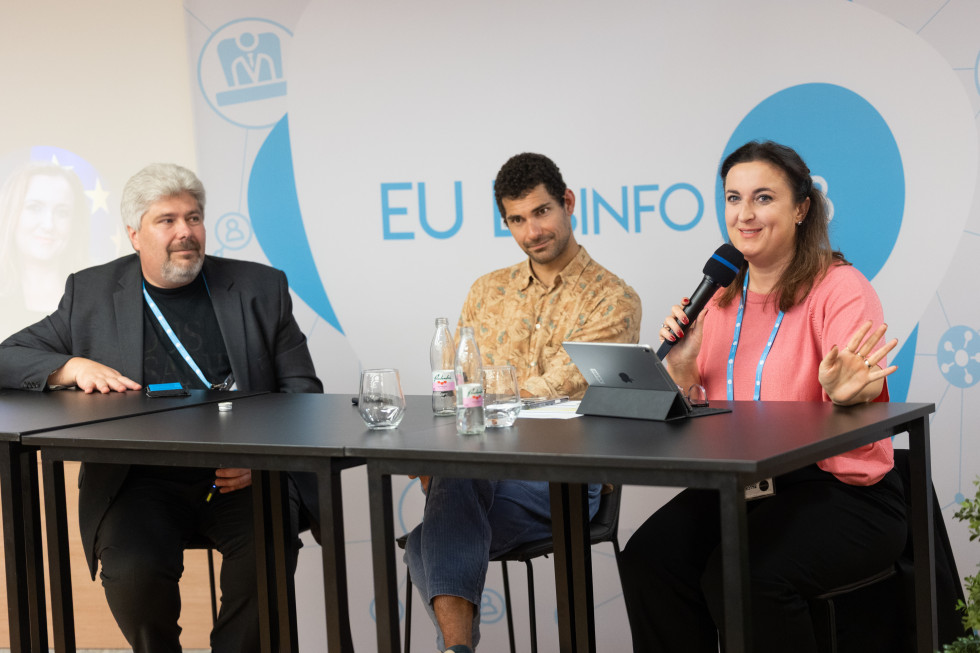What is »de-shitification« and how to improve the online experience
At the panel, one of many at the conference, they discussed how to reduce dependence on a single algorithm, a single advertising model and a single information intermediary. Developers should create tools and platforms designed for humans and not just for profit or, worse, to undermine democratic values, the panellists agreed.
Geopolitically, we live within borders defining countries, laws and identities. But online, these borders disappear. The internet is borderless – information, ideas and movements spread across national boundaries within seconds. This contrast between a limited physical world and an unlimited digital space is reshaping politics, culture and power relations. Governments try to control online spaces that don’t respect national borders, while individuals navigate a new form of citizenship – one that belongs to the internet as much as to any country, UKOM Director Petra Bezjak Cirman explained at the beginning. She also leads the Working group for disinformation prevention at the Secretariat of the National Security Council of the Republic of Slovenia.
Users as »hostages« of services
The term »shitification«, coined by writer Cory Doctorow, describes how the user experience of an online service gradually worsens as the company behind it becomes increasingly monopolistic and tries to extract as much value as possible from each user. »De-shitification« begins the moment users become »hostages« of the service – when there is no more serious competition or when switching to another platform is too cumbersome and unpleasant. From that point on, from a business model perspective, it makes sense to raise prices, remove costly features or prioritise advertisers’ interests over those of users.
How to improve the online experience
Maarten Schenk is co-founder and technical director of the Lead Stories platform and an expert on fake news and online scams. He is interested in the psychological and technical mechanisms by which individuals and networks spread fabricated stories on the internet. With Lead Stories, he developed a tagging system within the BlueSky platform that allows users to verify the authenticity of published information. It is up to the user whether to enable the feature that offers fact-checking of published content. The information is not labelled as disinformation or false but offers additional context.
Marc Faddoul is an interdisciplinary technologist and AI researcher, an expert in recommendation systems and algorithmic auditing. He is the director of the non-profit organisation AI Forensics, which investigates opaque and influential algorithms. He is also a member of the Free Our Feeds campaign, which aims to break the monopoly of platform feeds and develop alternatives for users and content creators. As an example of »shitification«, he mentioned Google, since half of its users do not distinguish ads from content. As a solution to »shitification«, he sees interoperability, where platforms are built on the same protocol, allowing content creators to transfer their content to alternative providers without losing content, followers or links if they are dissatisfied with their current platform.
Conference held in Slovenia for the first time
The #Disinfo2025 conference, organised by the Brussels-based NGO EU DisinfoLab, is one of the leading European conferences on combating foreign manipulation, interference and disinformation. This year, it was held in Slovenia for the first time. More than 600 participants gathered in Ljubljana, mostly from abroad.
Experts from NGOs, academia, journalism, government institutions and the European Union discussed identifying and preventing interference in the information space, protecting democratic values and the impact of foreign actors on elections. One of the key topics of the conference was foreign interference in elections and the implementation and application of the EU Digital Services Act.
The conference was supported by the Government Communication Office and the Ministry of Culture.


